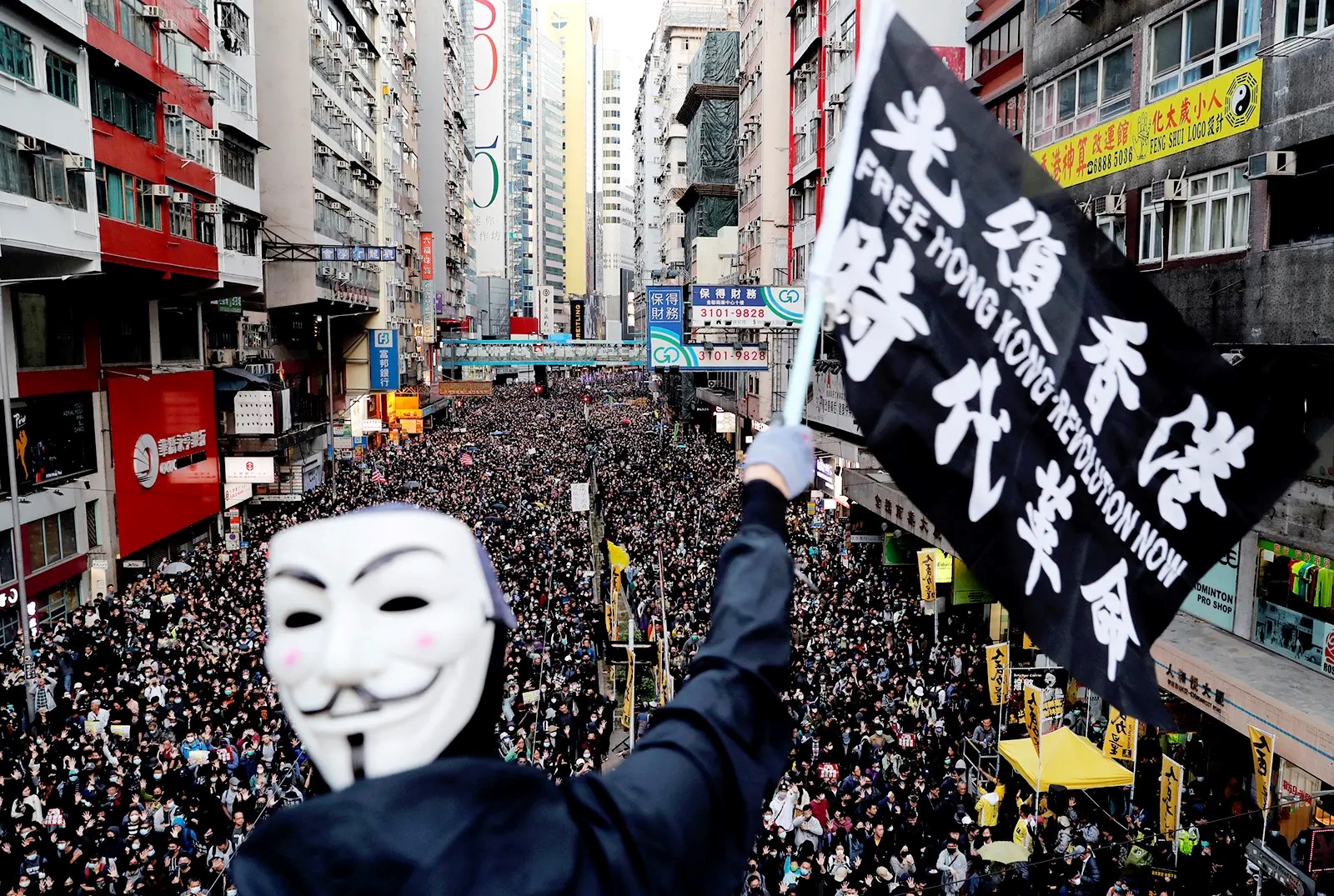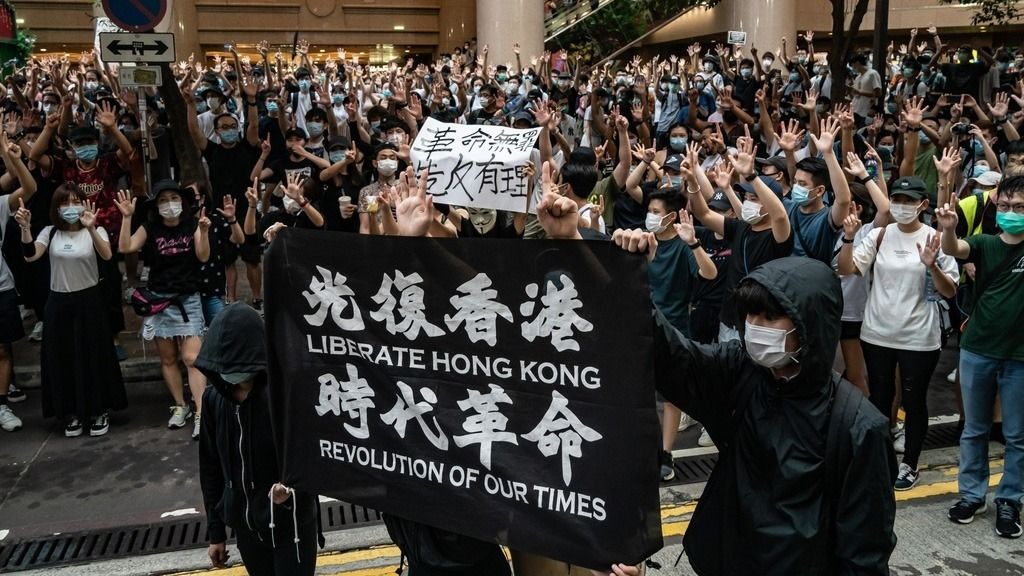
Hong Kong, once hailed for its “One country, two systems” framework that promised a high degree of autonomy in various aspects of governance, has been witnessing a gradual decline in its autonomy, particularly since the imposition of the National Security Law (NSL). The autonomy granted to Hong Kong encompassed financial independence, freedom of speech, freedom of association, legislative power, and judicial power, with restrictions primarily in foreign and defense affairs. These terms were enshrined in the 1984 Sino-British Joint Declaration and the Basic Law, regarded as Hong Kong’s constitution. However, the erosion of Hong Kong’s high degree of autonomy and democratic institutions has been a reality for over 30 years.

A significant turning point was marked in August 2014, when the National People’s Congress (NPC) of China imposed restrictions on the nomination of candidates for the Chief Executive position in Hong Kong. This decision sparked massive protests, famously known as “the Umbrella Movement,” characterized by nonviolent civil disobedience strategies, traffic blockades, and occupations of important places. The movement was a response to the erosion of democratic values and the desire to protect Hong Kong’s autonomy. Subsequent events, such as the proposed amendment on the extradition law, further fueled public anger and led to extensive protests.
In the years that followed, Hong Kong faced various challenges to its autonomy. One such significant challenge came with the proposed amendment to the extradition law in 2019. The public vehemently opposed this amendment, fearing it would allow the extradition of criminal suspects to mainland China and other countries without existing extradition agreements with Hong Kong. The proposed amendment led to massive protests, reflecting the growing apprehension about the erosion of democratic principles and the preservation of Hong Kong’s unique identity.

However, the situation escalated when the National Security Law was introduced, marking a severe setback for the civil rights movement and the democratic aspirations of Hong Kong. The enforcement of this law resulted in numerous arrests, particularly targeting human rights activists, lawyers, professors, and students. The impact on media freedom was profound, with Hong Kong’s press freedom ranking from Reporters Without Borders falling 68 places to 148th out of 180 locations.

The impact of the National Security Law has been substantial, with the arrests of those who have expressed views contrary to the government’s stance. Critics argue that this law has been wielded as a tool to suppress political opposition, thereby quashing Hong Kong’s once-thriving democratic space. By the end of 2022, a total of 236 people had been arrested under the National Security Law, with 145 individuals and 5 companies facing charges. Human rights activists, including lawyers, professors, and students, were particularly targeted.
Furthermore, civil society and human rights groups experienced restrictions and warnings from authorities. Prominent organizations like the UK-based Hong Kong Watch and the US-based Hong Kong Democracy Council found their websites blocked in Hong Kong, underscoring the increasing pressure on dissenting voices and civil society organizations.
Despite the assurance from China and Hong Kong’s government that the purpose of the National Security Law was to restore law and order, international assessments and reactions have raised serious concerns. The European Union’s annual report highlighted the continued erosion of democratic principles, freedoms, and autonomy in Hong Kong, despite China’s obligation to protect them. The UK government has consistently urged Beijing officials to respect the “One country, two systems” principle, emphasizing the critical importance of upholding democratic values and autonomy under the new security law.

In conclusion, Hong Kong’s has seen significant erosion of its autonomy and democratic freedoms. The erosion of freedoms, the arrest of activists, and increasing limitations on media and civil society raise critical questions about the future of Hong Kong as an autonomous region. Many in Hong Kong closely watch these developments, hoping for a future where democratic values and autonomy are preserved and upheld, in line with the promises made in the “One country, two systems” framework. Others however, have seen enough and think there is no going back – many from Hong Kong have left to the UK and other countries. Only time will tell how these dynamics evolve and shape the destiny of Hong Kong.
References
Hong Kong protests: What is the “Umbrella Movement”? (2019, September 28). BBC Newsround. https://www.bbc.co.uk/newsround/49862757
Continued erosion of freedoms’ in Hong Kong. (n.d.). https://www.lawsociety.ie/gazette/top-stories/2023/august/continued-erosion-of-freedoms-in-hong-kong
Hong Kong: Annual EU report on political and economic developments in 2022 | EEAS. (n.d.). https://www.eeas.europa.eu/eeas/hong-kong-annual-eu-report-political-and-economic-developments-2022_en
Reuters. (2023, August 18). Hong Kong freedoms continued to erode in 2022, despite promises, EU says. Reuters. https://www.reuters.com/world/asia-pacific/hong-kong-freedoms-continued-erode-2022-despite-promises-eu-says-2023-08-18/
Jazeera, A. (2023, January 13). The UK says Hong Kong freedoms continue to erode, drawing China anger. Politics News | Al Jazeera. https://www.aljazeera.com/news/2023/1/13/uk-says-hong-kong-freedoms-continue-to-erode-drawing-china-anger

0 Comments